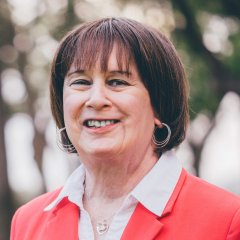-
Who's Online 2 Members, 0 Anonymous, 145 Guests (See full list)
- Petra Jane
- MaybeRob
-
Recently Browsing 0 members
- No registered users viewing this page.
-
Forum Statistics
-
Total Topics80.7k
-
Total Posts768.5k
-
-
Member Statistics
-
Total Members12,030
-
Most Online8,356
Newest Member
Togepi
Joined -
-
Today's Birthdays
-
BraxtonLee
(26 years old) -
Bryanna
(45 years old) -
Jayde1
-
Mireya
(66 years old) -
.thumb.jpg.f52288c7d3b632d63dbf4653ae2b4d67.jpg) Shellianne_Kay83
Shellianne_Kay83
(41 years old)
-
-
Posts
-

By Willow · Posted
Good morning coffees This probably doesn’t exactly apply to me because you wouldn’t have found a more shy and conservative person than me. I was perhaps less shy before my sister started complaining about me doing things that were hers to do. And I would become embarrassed and that was the end of that. upstairs unit got their typical weekend visitors in the middle of the night last night. They woke me up. They have little consideration for being in a condo community and the neighbors being in such close proximity. @awkward-yet-sweet , how goes the job with your husband’s boss? I don’t recall you saying much about it this week, but I could have missed a post along the way. If I recall you were supposed to meet with him last Monday. @KymmieL I hope you are feeling better. Yes, I find it to be wrong that just because a car part says Ford or Chevrolet on the box that same part with Lincoln or Cadillac on the box cost a lot.more. I know there are differences in the upscale brands such as the engine and drivetrain in the Caddy and of course the interior fit and finish. But it’s the same body with things crammed in the same way under the hood. well, time to finish my coffee, fix my hair and made my way across the street to work. willow -

By Susan R · Posted
I read about her this morning. What a shame! She was beautiful and it seems she had a strong support system in place and could have had a wonderful life all to have it end like this. Such a waste. I truly hope the monster that killed her gets everything he deserves. -

By Susan R · Posted
They’re not going to stop anytime soon either. Tighten your belts folks were in for a long ride. -

By Carolyn Marie · Posted
https://www.newson6.com/story/628ecf1347f55207110ce491/oklahoma-city-bombing-victims Carolyn Marie -

By Susan R · Posted
I am so glad you enjoy them as well. The help things “stay put” so well. It got me through some of my most dysphoric times. Wow, I hadn’t heard this at last week’s Zoom meeting if you had mentioned it. That is a huge milestone April Marie.I have no doubt that this confidence will only grow in time. The freedom of being yourself, especially in public, is a wonderful feeling. I am truly happy for you.😘 *Big Congratulatory Hug* Susan R🌷 -

By Susan R · Posted
Trans Group Zoom Meeting Tomorrow!! Another Zoom meet-up will happen tomorrow. It’s an opportunity to meet and chat with members from this forum as well as others within our worldwide trans community. All are invited so join us and if you want…say “Hi”. Stop by anytime as the meetings typically run 3 to 4 hours. Feel free to stay as long as you want and leave at any time during the meeting. Trans Group Zoom Meeting Times: April 27, 2024 6:00 PM Pacific Time April 27, 2024 8:00 PM Central Time April 28, 2024 11:00 AM Australia/Melbourne Message me for the meeting link if you’d like to attend. *Hugs* Susan R🌷 -

By Carolyn Marie · Posted
@Abigail Genevieve, that is not an appropriate question, IMO. This isn't the Army/McCarthy hearings. Carolyn Marie -
By EasyE · Posted
Don't think Americans would go for the "compulsory" part. We kind of like not being told what to do ... Amazingly, there is great pushback on voter ID laws. The opponents say it discourages voting, especially among the poor and minorities. That is really a smokescreen IMO for those who want to harvest ballots from as many places as possible, including folks who don't exist or don't hold citizenship... -

By Betty K · Posted
Pretty soon I think I might be ready to talk about gender-affirming care for kids, possibly w/r/t the Cass Review and its shortcomings. -

By KayC · Posted
She was a beautiful young woman ... "What we do know is that the offender was a very violent individual and should not have been on our streets.” Whether gender related or not, the mental health and incarceration issues in our country are incredibly bad and need to be addressed. -

By Sally Stone · Posted
April, I'm glad my entries are interesting to you. TransCentralPA is a great organization with so many caring people. I would strongly recommend you find a way to attend the Keystone Conference. I guarantee you'll find it an amazing experience. Hugs, Sally -

By KayC · Posted
Would LOVE to sit in on this one, April -

By KayC · Posted
Dear @Sally Stone. I think you should author a memoir based on these posts (maybe you're already working towards that?). You could decide at a later time if/when you might want to publish. I appreciate you sharing your deep connection with your friend Willa (and I am sorry for your loss) and the benefit of having a Trans friend and mentor in our Life and Journey. I was fortunate to have found one also in our TGP friend @Kasumi63. As you know we share many common Life themes in our stories. Drop me a PM if you'd like to chat about it. Looking forward to the next 'chapter'. -

By Mirrabooka · Posted
Voting is compulsory here, for better or worse. Would doing the same in the US snap people out of their apathy? -

By Abigail Genevieve · Posted
I am noting you use CRT terminology. The comment is not out of the blue. Some of your remarks on religion suggest atheism. So it is believable that you are a Marxist, knowingly or not. Are you?
-
-
Upcoming Events
-

Recommended Posts
Create an account or sign in to comment
You need to be a member in order to leave a comment
Create an account
Sign up for a new account in our community. It's easy!
Register a new accountSign in
Already have an account? Sign in here.
Sign In Now